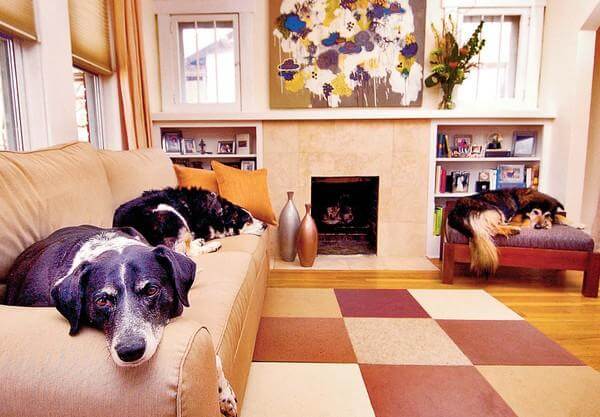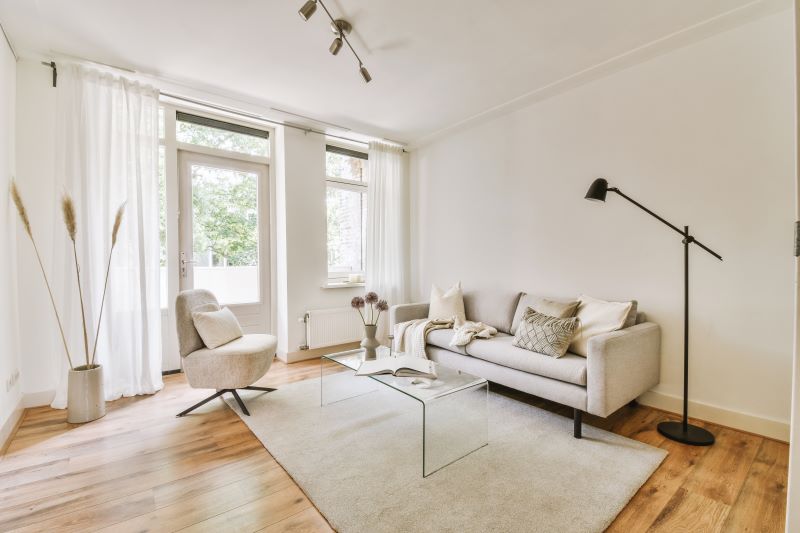
Making sure your home is a haven for you and your furry friends
Whether you are a dog-person or a cat-person, for many people home just isn’t home without a pet. Pet ownership has been shown to create an incredible array of health benefits, from stress reduction and companionship to lower blood pressure and cholesterol–not to mention a healthy dose of feel-good chemical oxytocin. Pets enhance our lives mentally, emotionally, and physically.
Whether you currently have a pet or are thinking about adopting one, it pays to think through some of the logistics in order to ensure your pet is as healthy and happy as possible. Here are some ideas for ensuring your pet enjoys apartment living and your landlord and neighbors enjoy your pet.
- Consider crate training. Crate training is a great option for apartment dwellers, providing dogs with a small domain that is all their own. In addition, it ensures that your dog will not be wandering around the apartment and, out of boredom, get into something he or she shouldn’t. A sufficiently sized crate should have room for your dog to stand, turn around, and lie down comfortably, but not so much room that the dog can roam around and soil the crate.
- Keep pets active. Whether it is taking your dog to a dog park or playing with your cat after supper, activity is essential for apartment-dwelling pets. A tired pet is a good pet, and a bored pet will almost inevitably express boredom through undesirable behaviors like chewing, scratching, or excessive barking. And bonus? The playtime is good for you too, offering you the opportunity for activity and bonding that will make you and your pet even closer.
- Avoid potty problems. One of the most difficult things to deal with in an apartment is making sure that dogs are walked enough to avoid potty accidents and that cats’ litter boxes don’t become overpowering. The key to both of these issues is consistency and, in some cases, innovation.
- For dogs, being proactive is the secret to reliable house training, thus rather than waiting for your dog to let you know he or she needs to go outside, create a schedule that responds to the times dogs need to go–after meals, after play, and after sleeping. Need an alternative for rainy or snowy days? Invest in a porch potty to allow your dog a sheltered, convenient place to go when the weather is bad.
- For cats, cleanliness is paramount. Soiled or stinky litter is not only unpleasant to you–it deters your cat from using the litter box. Experiment with different types of litter to find one that works best for odor control and that your cat prefers. Some people find that crystal litter does a great job at controlling odors, but their cats won’t use it. Other find that walnut shell litter is the answer. Try different types to see which one works best for you and your cat. Need an alternative? It may sound crazy, but some people swear by potty-training their cats. If you have the patience, this option means no more litter boxes and no more stinkiness.
- Take time to train. One of the most difficult behaviors to curb is excessive barking, and dogs that are bored, frustrated, or lonely may create problems with neighbors and landlords. The good news is that there are things you can do to help your dog quiet down.
- Look for ways to soothe your dog. Some dogs may love having a TV or radio left on. Some dogs may do better if they get some morning exercise before you go to work. Others may need a weighted vest to help them with anxiety. Spend some time trying to find ways to help your dog feel better, so he doesn’t feel the need to vocalize so much.
- Reward your dog for good behavior. Avoid reaching out, petting, or talking to your dog while he or she is barking. Try your best to ignore that undesirable behavior, then offer a treat or attention when he or she is quiet.
- Figure out your dog’s triggers. Is your dog’s barking worse when they see another dog? Maybe they need more socialization at the dog park. Is it worse when the doorbell rings? Spend some time training them not to react to the doorbell through positive reinforcement. Knowing what causes excessive barking is the first step in curbing it. (For great ideas and training techniques, check out the Humane Society’s page on this.)
- Find help when needed. Don’t try to handle everything on your own. Do you have a friend or neighbor with a pet? Maybe you and she could trade off dog-walking or pet-sitting duties. Or reach out to a local service and have someone check in on your pet during the day to reduce anxiety and loneliness while you’re gone. Scheduling someone to stop by occasionally can help keep your pet happier which in turn can lead to better behavior.
Pet-friendly apartment living can help make you and your pet happier and healthier. It takes a little time and patience, but creating good processes and habits will result in a happier home for both of you. And if you are looking for a pet-friendly apartment, look no further than our site dedicated solely to Boston Pet Apartments. They have the best pet-friendly apartments in whatever neighborhood you’re looking for, and the real estate pros to help you find the right place for you and your fur-baby. Start your search today!
Demetrios Salpoglou
Published November 15, 2017
Demetrios has pulled together the largest apartment leasing team in the Greater Boston Area and is responsible for procuring more apartment rentals than anyone in New England – with over 130k people finding their housing through his services. Demetrios is an avid real estate developer, peak performance trainer, educator, guest lecturer and motivational speaker.





